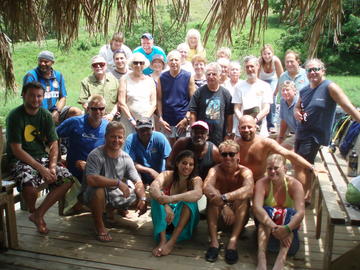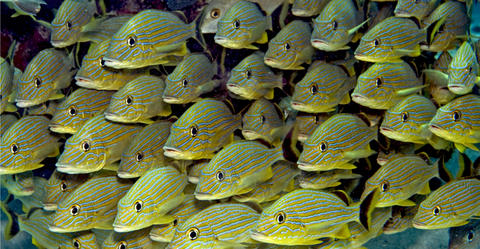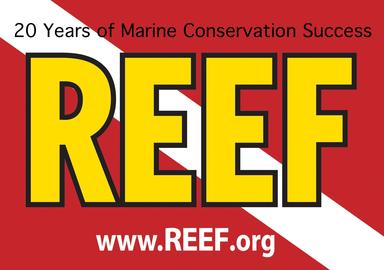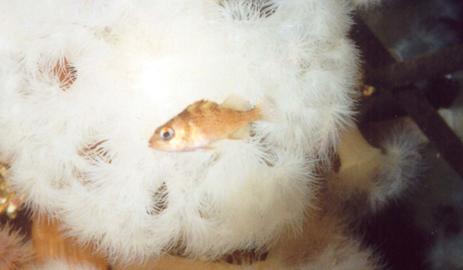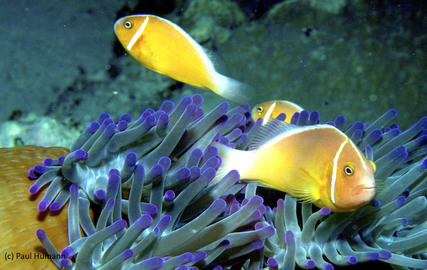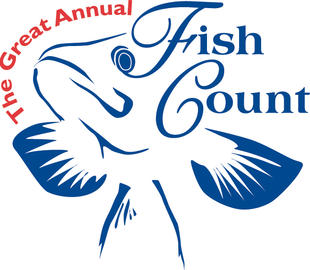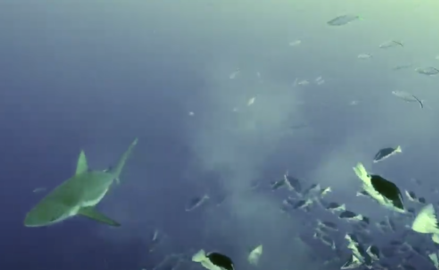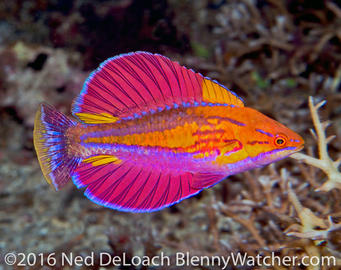REEF Field Surveys trips that are a great introduction to fish identification for novice fishwatchers, and a fun way for experienced surveyors to build their life list while interacting with fellow fishwatchers. REEF coordinates Field Surveys to locations throughout our project regions each year. These projects are led by REEF staff and other REEF instructors and feature daily classroom seminars and a full diving schedule.
There is just one week left to Double Your Donation as part of our Summer Fundraising Campaign. We are so close to reaching our goal of raising $60,000 in 60 days! Please help us in this final stretch, every donation counts! You can contribute through our secure website at www.REEF.org/contribute, mail your donation to REEF at PO Box 246 - Key Largo, FL 33037, or call us at 305-852-0030. Double your donation and ensure REEF’s marine conservation programs can continue.
In the summer of 1993, the first REEF fish surveys were conducted by a group of pioneering volunteers. Twenty years later, REEF's Volunteer Survey Project and other REEF initiatives are leading the way as innovative and effective marine conservation programs. To celebrate, we will be hosting 4 days of diving, learning, and parties this August in Key Largo, Florida, and we hope you will join us! REEF Fest - Celebrating 20 Years of Marine Conservation Success will take place August 7-11, 2013.
Every month, scientists, government agencies, and other groups request raw data from REEF’s Fish Survey Project database. Here is a sampling of who has asked for REEF data recently and what they are using it for:
- Scientists from NOAA Northwest Fisheries Science Center are using REEF data on juvenile (YOY, young-of-year) rockfishes to evaluate potential YOY habitat for development of a monitoring program in the Puget Sound.
Thank you so much to everyone that donated during our summer matching campaign! We reached our goal, as REEF members donated more than $56,100 this summer to fund our critical programs. These donations were matched dollar for dollar, up to $55,000 by the Curtis and Edith Munson Foundation, the Henry Foundation, and the Pelton Charitable Foundation. From research on Grouper Moon to controlling invasive lionfish programs and discovering new species, REEF's programs are increasing knowledge of the unknown beneath our seas!
Great Annual Fish Count 2010 - An exciting lineup of free identification seminars and survey dives are being organized around the country by REEF partners. Check out the GAFC Website for more details and to find out how to organize your own GAFC event. And be sure to watch the GAFC calendar of events to see what's being planned in your area.
As 2011 comes to an end, please consider a tax-deductable gift to REEF so that we can continue our cutting edge marine conservation programs. We rely on your
Since last week, our partners at the Cayman Islands Department of Environment have been busy in the field, conducting multiple dives each day on the Nassau Grouper spawning site on the west end of Little Cayman. Since 2002, this site has been the focus of our collaborative conservation effort, the Grouper Moon Project. The team has been performing visual assessments, collecting size estimates through stereo-video, and capturing images of individual fishes for our "Fish Faces" project, which uses artificial intelligence to measure population size.
On World Oceans Day, REEF kicked off our annual summer matching campaign. Every donation that comes in through August 8, up to $40,000, will be matched dollar for dollar! We are highlighting all the exciting new discoveries REEF staff and members are making through our core programs. With your help this summer, REEF can continue to study the vast underwater world that remains largely unexplored and encompasses more than 70% of our blue planet.
REEF proudly awards our 2008 Volunteer of the Year award to Sheryl Shea, a dedicated REEF surveyor, teacher and ambassador. Sheryl became a REEF member in the very early days of the organization and has consistently been one of our most active surveyors. Her first survey was conducted in 1994 and to date Sheryl has conducted 954 REEF surveys. Sheryl became a member of the Advanced Assessment Team (AAT) in 1999 and her lifelist contains 351 fish species.

